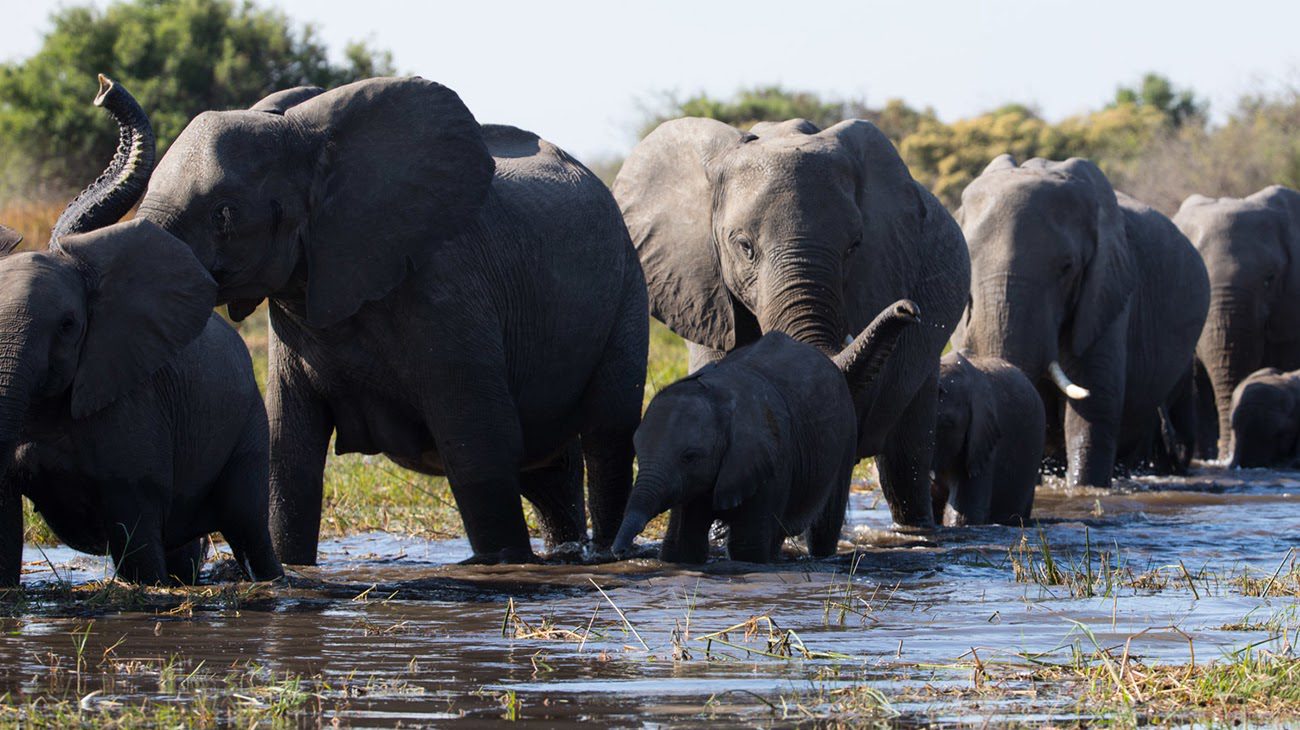Confession: I walk around wearing Jesus-tinted glasses that change the way I see the world. It’s like an Instagram faith filter, only for life. As a result, I see Jesus in everything. After all, God planted slivers and prisms of His majesty in all of Creation, a Where’s Waldo exercise for His people, only in this case, Waldo shows up everywhere, in every wrinkle and rainbow.
So when I watch movies like DisneyNature’s Elephant, available on Disney+, I can’t help but find glimpses of God.
DisneyNature’s Elephant: What to Expect
Even without the hyper-spiritualizing I’m about to do, Elephant is an entertaining and inspiring family-friendly flick that’s bound to give you the feel-goods about making it through long and arduous journeys. Narrated by Meghan Markle, the Duchess of Sussex, this pachydermic documentary follows a herd of African elephants from the Okavango delta across the Kalahari desert to the Zambezi river.
Using innovative methods of tracking animals through treacherous wilderness, the videographers invite viewers to get up close and personal with these magnificent mammals. Since the nearest I’ve been to the Kalahari is the indoor waterpark it’s named after, I couldn’t wait to see these animals in their natural habitats.
The documentary follows a herd of elephants led by their matriarch, Gaia, a forty-year-old elephant charged with the role of lead navigator to find the sources of water that can sustain her family through the seasonal droughts of the African wilderness. She’s joined by a mother elephant, Shani, and Shani’s calf, Jomo, as well as the rest of her extended family of elephants.
Finding the Love: Faithifying Your Viewing
It might not be the intention of every filmmaker to show us Jesus, but if we look closely enough, we’re going to find the love of the Creator everywhere, and we can certainly find Jesus in Elephant.
The vivid footage of the desert offered insights for me into a metaphor used by Jesus in the Gospel of John, chapter 4. What does it mean for Jesus to be living water? When the Okavango delta dries up, it turns to desert. As the delta waters flow again, the streams of living water literally turn dust into paradise. Jesus turns our barren and fruitless deserts into blooming and wild paradises. Do you feel dried up, hopeless and broken, dry throated and weary? Seek ye first the kingdom of God; the Living Water is ready to lose the dormant seeds, free the captives, raise the life that’s been hibernating. Just watch. Just watch what the Living Water can do.
When Jomo is separated from his mother, we witness the poignant self-sacrifice of the shepherd who leaves the ninety-nine to go back and rescue the one. The lions are fierce with their dominant and intimidating powers. Yes, but the shepherd is good, bold, and courageous. He loves the one, and he will never leave the one.
Oh, God, you wept at the death of Lazarus. Oh, God, you discipled fumbling and stumbling Peter to become the rock for the next generation. We see these same stories, these same truths, told again in the relationship between Gaia and Shani. If elephants can mourn, perhaps we can mourn with those who mourn. If elephants can rise up and lead, perhaps we can be not afraid to grow boldly.
The herd itself calls us to a better understanding of the togetherness of God’s second greatest commandment, love your neighbor as yourself. The herd cares for one another, trusts one another, hopes for one another, and perseveres, the way love is promised to do, the way God promises He will. If elephants can protect the weak and walk together through suffering, perhaps we can walk together through our great journeys of adversity, too.
When we take a close look at the behavior of creatures all throughout the animal kingdom, humans can find fascinating connections and parallels to our own peculiarities as a species. These glimpses of the Creator’s love can inspire us to live differently, more deeply, and intentionally. We’re moved to not just preserve these habitats for other species; we’re reminded of God’s great love and commandment to love the whole world.





 Copyright
2024
Root and Vine
Copyright
2024
Root and Vine